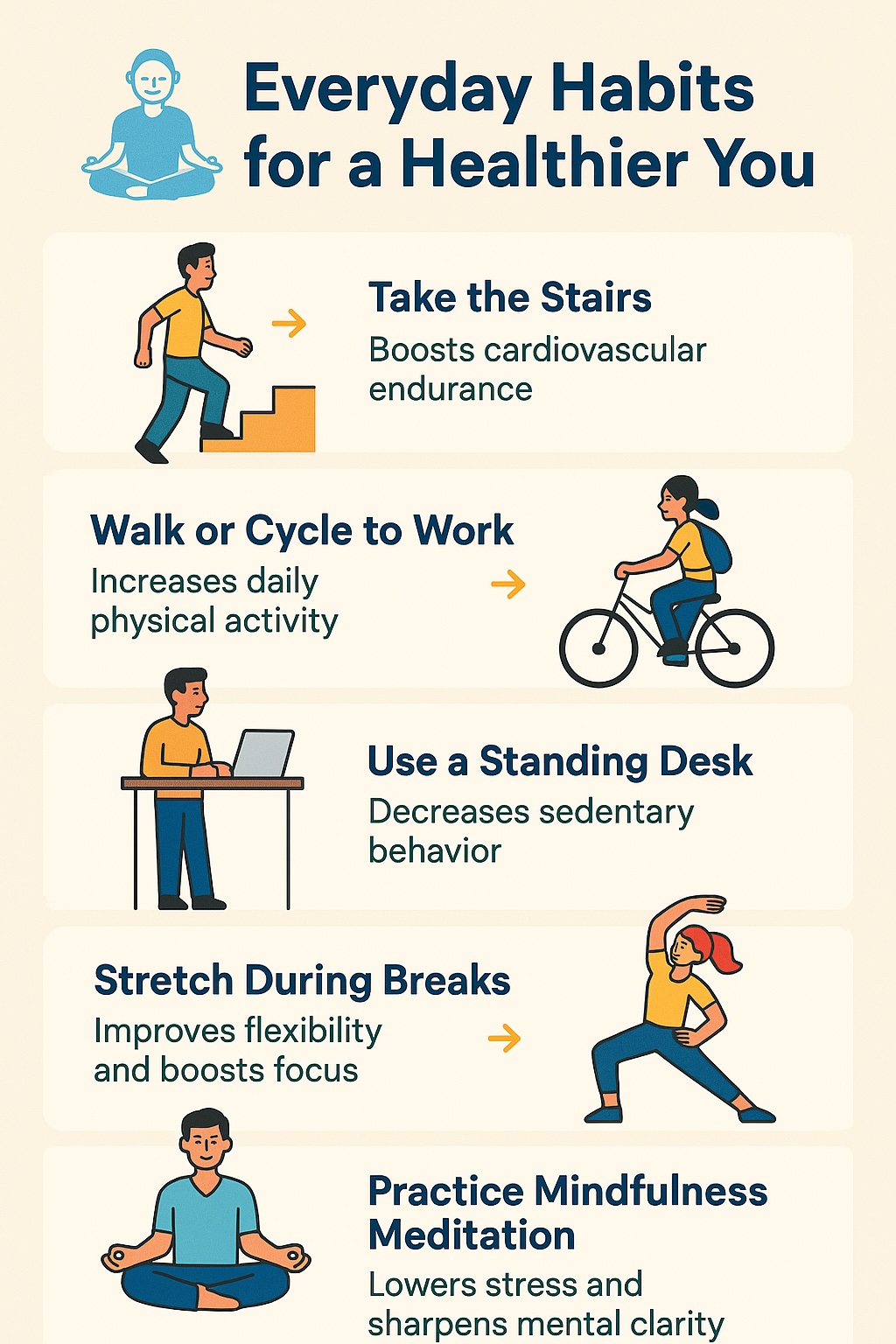
When striving for exceptional performance, is it the sharpness of one’s mental acumen or the strength of physical wellness that paves the path? In reality, the synergy between these two elements unleashes profound capabilities. The connection between physical wellness and high performance becomes apparent when considering how regular exercise fortifies mental acuity and augments productivity. By exploring the profound impact of blood flow to the brain through exercise, this discussion delves into the intricate relationship between physical wellness and heightened cognitive function, ultimately arguing that a physically sound body is the cornerstone of exceptional performance.
Understanding How Physical Wellness Fuels High Performance
Physical wellness plays a pivotal role in enhancing mental acuity and cognitive functions, directly impacting high performance in personal and professional spheres. Regular exercise augments blood flow to the brain, vital for improving memory, concentration, and overall cognitive capabilities.
Increased cerebral circulation through consistent physical activity leads to significant enhancements in memory retention and concentration. For instance, how does physical wellness affect cognitive function? By increasing blood flow to the brain, exercise facilitates the efficient delivery of oxygen and nutrients, crucial for optimal brain performance. This physiological improvement allows individuals to process information more rapidly and effectively, thereby elevating their ability to perform complex tasks with precision and accuracy.
Furthermore, the correlation between physical activity and productivity is well-documented. Studies indicate that engaging in regular physical exercise can enhance productivity by up to 15%. This improvement stems from exercise’s ability to reduce stress levels, elevate mood, and boost energy. How does physical wellness impact productivity? By mitigating stress and enhancing energy levels, individuals experience heightened focus and efficiency, enabling them to tackle professional challenges with increased vigour and effectiveness.
- Enhanced memory and concentration from improved blood circulation
- Increased productivity by up to 15% through regular exercise
- Reduction in stress levels and elevation in mood
- Boosted energy levels contributing to sustained performance
- Improved problem-solving abilities and cognitive resilience through physical activity
.
The Role of Exercise Routines in Enhancing Performance
Structured exercise routines are pivotal in achieving high performance, both mentally and physically. Experts recommend at least 150 minutes of moderate aerobic exercise each week, complemented by strength training exercises, to attain optimal physical wellness. These guidelines ensure a balanced approach to fitness, enhancing not only physical health but also cognitive function and stress management. How much exercise is needed to achieve physical wellness? Precisely 150 minutes of moderate aerobic exercise weekly, combined with regular strength training sessions.
Aerobic Exercise and Endurance
Aerobic exercises are fundamental in improving cardiovascular health and managing stress. By engaging in activities such as running, cycling, or swimming, individuals can significantly enhance their cardiovascular endurance, allowing for better oxygen distribution throughout the body. This increased oxygen flow not only boosts physical stamina but also aids in stress reduction by releasing endorphins. What are the benefits of aerobic exercise? Enhanced cardiovascular health and effective stress management through endorphin release. These physiological changes contribute to improved endurance, enabling individuals to remain focused and composed during high-pressure situations.
Strength Training and Workout Efficiency
Strength training is essential for building muscle strength and improving workout efficiency. Through exercises that focus on resistance, such as weightlifting and bodyweight exercises, individuals can increase muscle mass, leading to improved metabolic rates and energy expenditure. How does strength training improve physical performance? By enhancing muscle strength and endurance, it leads to greater workout efficiency and overall physical capabilities. This improvement translates into higher performance levels, allowing individuals to execute tasks with greater precision and less fatigue.
Integrating these exercise routines into daily life is crucial for sustained high performance. By adhering to a structured exercise regimen, individuals can achieve a harmonious balance between physical exertion and recovery. This balance is key to maintaining peak performance levels over time, ensuring that both physical and mental faculties are optimally aligned.
Nutrition and Its Impact on Physical Wellness and Performance

A well-balanced diet is indispensable for sustaining energy and enhancing endurance, thereby fuelling physical wellness and boosting performance. How does a balanced diet impact performance? By providing the necessary energy for sports activities, a balanced diet reduces fatigue and mitigates the risk of poor performance. The synergy between physical and mental faculties is supported by an optimal nutrient intake, ensuring that individuals can meet the demands of both personal and professional challenges with vigour.
- Calories
- Carbohydrates
- Fluids
- Iron
- Vitamins
- Minerals
- Proteins
.
The Role of Pre-Exercise Meals
Pre-exercise meals play a critical role in maintaining blood sugar levels and fuelling muscles. How do pre-exercise meals affect performance? By stabilising blood sugar levels, they prevent hunger and supply the necessary fuel to muscles. This preparation enhances the quality of athletic performance, enabling individuals to perform at their peak. Proper nutrient intake before exercise ensures that the muscles have access to glycogen stores, facilitating optimal energy levels and muscle function during physical exertion.
Incorporating effective nutritive strategies into daily routines is essential for achieving enhanced physical and mental synergy. Practical tips include planning meals that are rich in essential nutrients and timing food intake to align with physical activity schedules. What are some practical tips for enhancing performance through nutrition? Ensuring meals are nutrient-dense and well-timed boosts energy levels and supports cognitive functions, thereby promoting a proactive lifestyle. By adopting these strategies, individuals can maintain a robust level of physical wellness, driving exceptional performance across various domains.
Stress Management and Restorative Sleep for Optimal Performance
Physical activity is a cornerstone of stress management, playing an instrumental role in enhancing focus and composure in high-pressure situations. How does physical activity help reduce stress? Precision: Physical activity releases endorphins, which aid in stress reduction. These endorphins, often referred to as “feel-good” hormones, not only alleviate stress but also promote a state of mental clarity and emotional stability. By incorporating regular exercise, individuals can maintain a balanced state of mind, essential for tackling both personal and professional challenges with resilience and effectiveness.
- Deep breathing exercises
- Mindfulness meditation
- Progressive muscle relaxation
- Yoga and stretching
- Time management techniques
.
The Importance of Restorative Sleep
Quality sleep is paramount in facilitating recovery and enhancing performance. How does restorative sleep contribute to performance? Precision: Restorative sleep aids in recovery and improves mental and physical performance. During sleep, the body undergoes critical repair processes, while the brain consolidates information, enhancing memory and cognitive function. This restorative phase is crucial for maintaining high levels of productivity and ensuring that individuals remain alert and responsive in their daily tasks. A consistent sleep schedule and a conducive sleeping environment further bolster the benefits of restorative sleep, leading to sustained high performance across various domains.
Integrating stress management techniques and prioritising restorative sleep into daily routines is fundamental for long-term high performance. By actively engaging in stress reduction practices and ensuring adequate sleep, individuals can cultivate a proactive approach to health, ensuring sustained mental and physical well-being. This holistic strategy not only enhances daily functioning but also fortifies resilience against the demands of an ever-evolving environment.
Integrating Physical Wellness into Daily Routines for Sustainable High Performance
A holistic health approach is paramount for achieving sustainable high performance. By embracing a comprehensive strategy encompassing mind, body, heart, and spirit, individuals can significantly enhance their physical wellness. How does a holistic approach impact performance? Precision: It fosters balance and resilience. This methodology ensures that all aspects of well-being are nurtured, allowing individuals to remain agile and responsive in the face of life’s demands. By focusing on interconnected wellness dimensions, people can achieve not only improved performance but also a greater sense of fulfilment in their daily lives.
Setting specific fitness goals and scheduling workouts are integral components of proactive lifestyle management. What is the benefit of setting fitness goals? Precision: It provides direction and motivation. By defining clear objectives, individuals can tailor their physical activities to meet personal health targets. Regularly scheduled workouts ensure consistency and progress, forming the backbone of a disciplined wellness regimen. This structured approach to fitness helps instil habits that become second nature, supporting long-term health and performance objectives.

These practices culminate in sustainable high performance and overall well-being. How do daily wellness habits contribute to performance? Precision: They establish a foundation for enduring health benefits. By integrating simple yet effective changes into daily routines, individuals can significantly enhance their physical wellness over time. This proactive approach not only bolsters endurance and recovery but also cultivates a resilient mindset. As individuals embrace these practices, they forge a pathway to enduring success, marked by elevated performance and holistic well-being.
Final Words
Recognising the vital role of physical wellness in fuelling high performance is essential. Regular exercise enhances mental acuity by boosting blood flow to the brain, sharpening memory and focus. Structured exercise routines, combining aerobic exercises and strength training, significantly amplify endurance and stress management capabilities. Additionally, a balanced diet supports physical wellness, reducing fatigue and augmenting performance.
Incorporating stress management techniques and ensuring restorative sleep further contribute to optimal performance. By embedding these practices into daily life, individuals can achieve sustained high performance and overall well-being.
FAQ
How does physical wellness fuel high performance?
Physical wellness fuels high performance by enhancing mental acuity, reducing stress, and boosting energy levels. Regular exercise increases blood flow to the brain, improving memory, concentration, and cognitive functions.
What are the benefits of physical activity?
The benefits of physical activity include enhanced cardiovascular health, increased endurance, improved mood, stress reduction, and heightened energy levels. It also contributes to better mental health and increased productivity.
How do food choices impact performance, muscular strength, and endurance?
Food choices affect performance by providing essential nutrients for energy and muscle function. A balanced diet enhances endurance and strength, while poor nutrition may lead to fatigue and decreased performance.
How does nutrition affect athletic performance?
Nutrition impacts athletic performance by supplying the necessary energy and nutrients, such as carbohydrates, proteins, and minerals, to fuel muscles, sustain endurance, and promote recovery.
Why is physical wellness important?
Physical wellness is crucial for maintaining a healthy lifestyle, as it enhances mental acuity, boosts energy, reduces stress, and contributes to overall well-being and high performance in personal and professional contexts.
How does a well-balanced diet improve physical performance?
A well-balanced diet improves physical performance by maintaining optimal energy levels, supporting muscle function, and enhancing recovery. Proper nutrient intake is vital for sustaining energy and avoiding fatigue.
What are examples of fuelling for performance?
Examples of fuelling for performance include consuming carbohydrate-rich meals before exercises, hydrating adequately, and ensuring balanced nutrient intake to support energy levels and muscle recovery.
How does restorative sleep contribute to optimal performance?
Restorative sleep facilitates recovery by allowing the body and mind to rejuvenate, enhancing memory, focus, and overall productivity. Quality sleep is essential for maintaining mental and physical performance.


